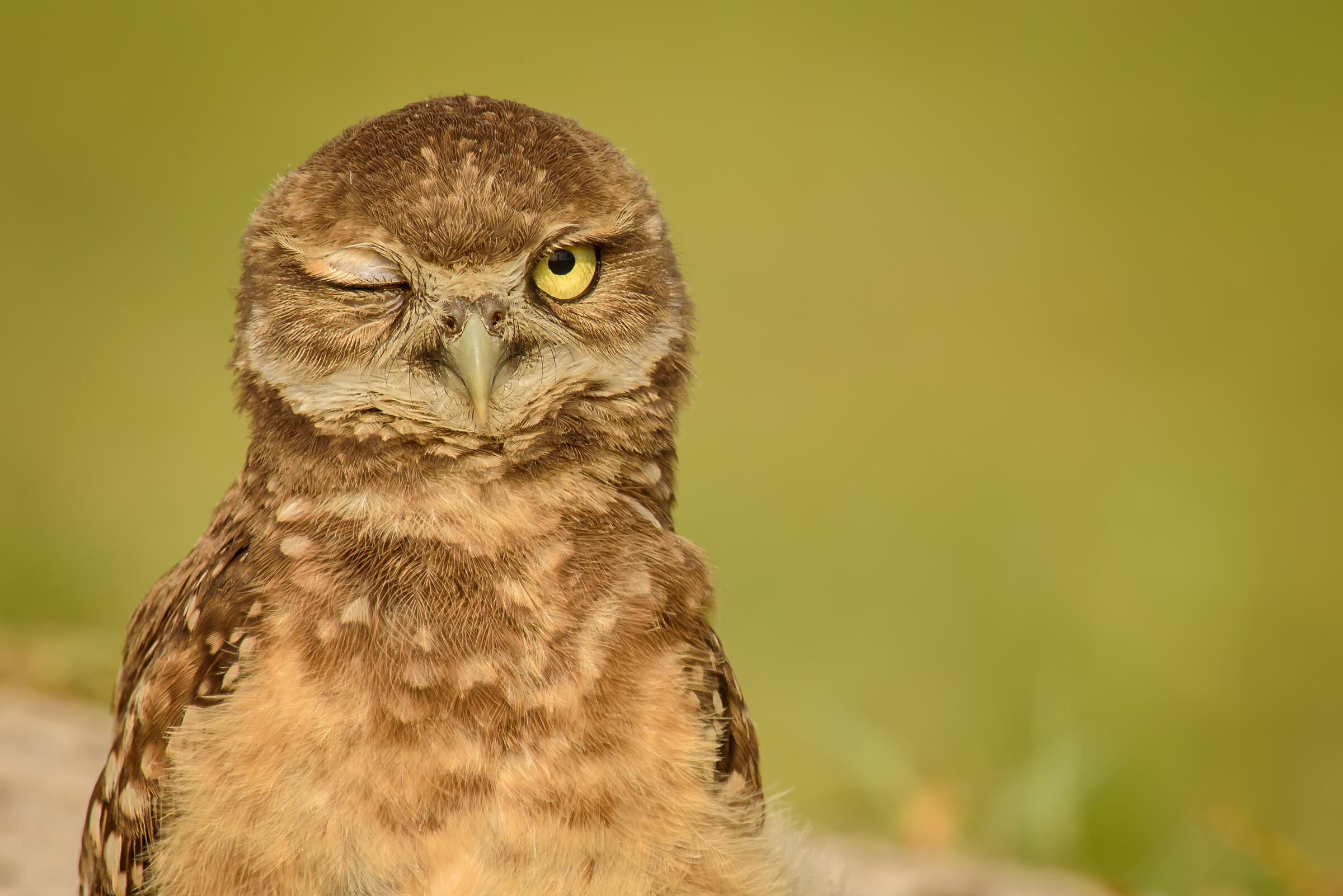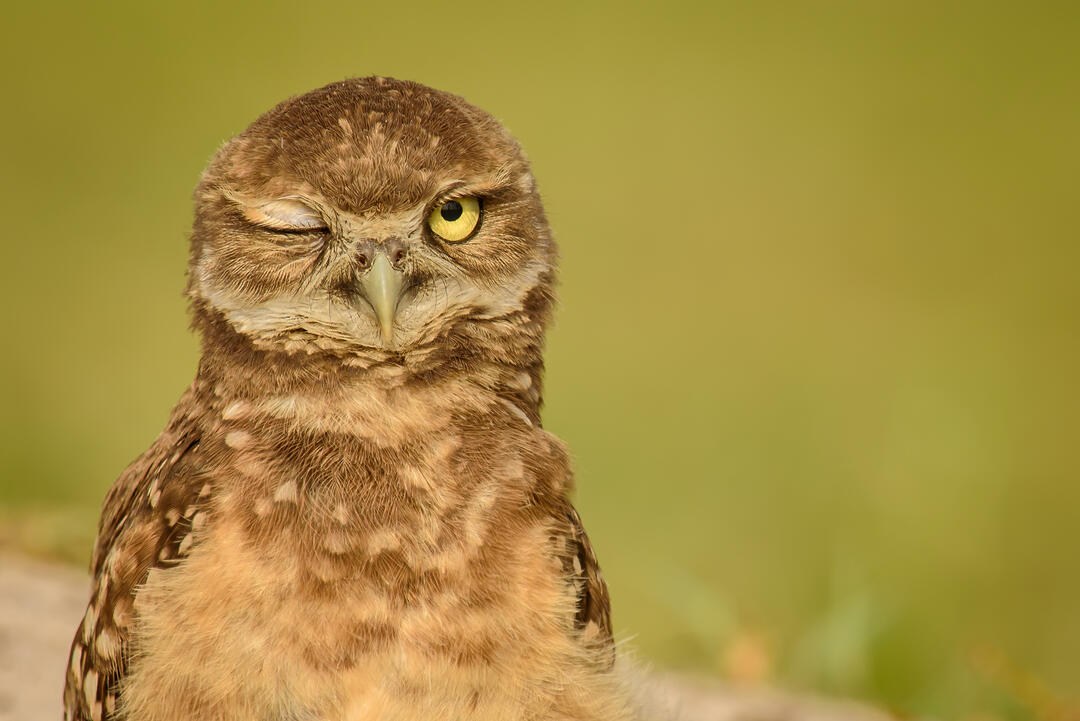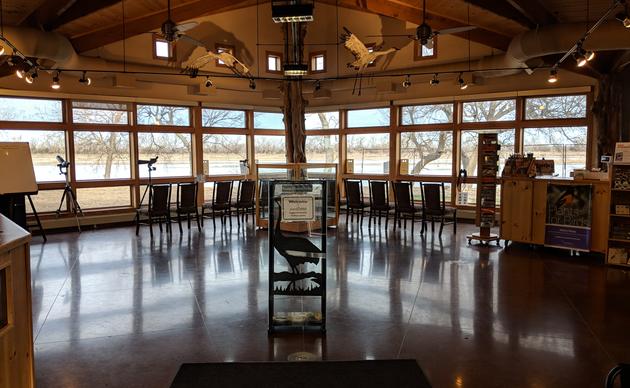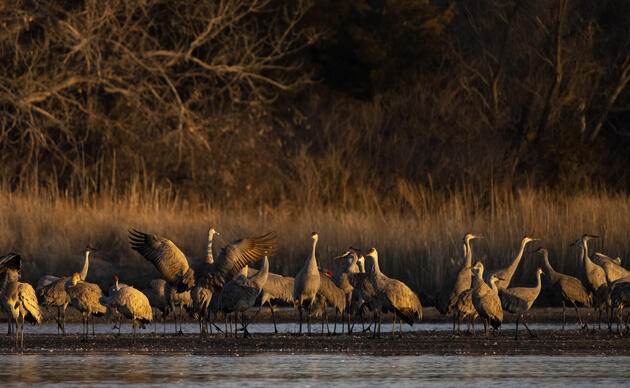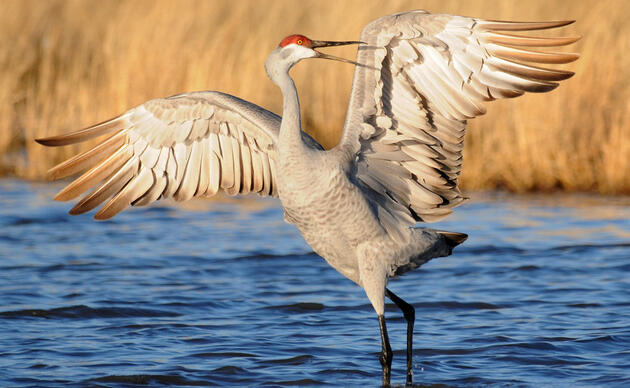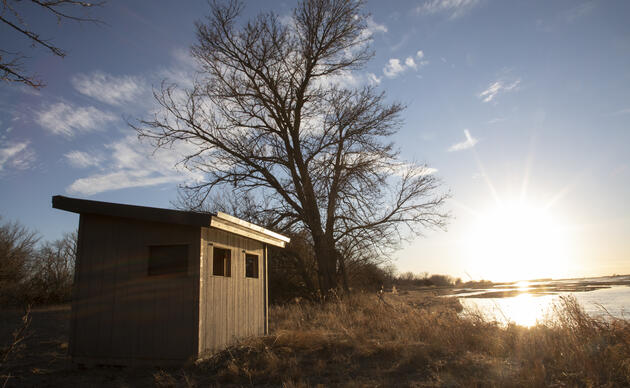What to do if you find an injured animal
1. Determine if the animal (baby or adult) needs help by looking for signs of injury, illness, or abandonment (babies):
- Bleeding
- Has open wounds or a fractured limb
- Adult animal does not startle when approached
- Cold and still
- Covered in flies and/or maggots
- Cannot use one or more of its legs
- Baby is exposed to wide open area with no cover
2. If one or many of the above signs are observed, contact a wildlife rescue group for further instructions before handling the animal and to transfer the animal to their care. DO NOT feed the animal- this may result in severe illness and death and should be left to wildlife professionals.
If you find an injured or downed raptor (hawk, eagle, owl, vulture, falcon, or kite) in the state of Nebraska, please call the toll-free rescue hotline for the Raptor Conservation Alliance at (866) 888-7261 or visit their website at rcabirds.org. Please leave a voicemail with your name and the location of the injured bird. If the call is not answered, a member of their staff will respond as quickly as possible.
If you find an injured animal that is not a raptor in the state of Nebraska, please call the Nebraska Wildlife Rehab rescue hotline at (402) 234-2473 or visit their website at https://nebraskawildliferehab.org/. Wildlife Rescue Team Inc. is another organization that can assist you: (402) 473-1951 or http://www.wildliferescueteamincne.org/. Leave a voicemail with your name and location of the injured animal. If the call is not answered, a member of their staff will respond as quickly as possible.
3. If you found a baby that you suspect to be abandoned, follow these instructions:
- If the baby is not in immediate danger (i.e. out in the open, near a dog, cat, or other predator), observe the behavior of the animal. Look for a tree they might have fallen from or a nest in the ground they may have crawled from. Look to see whether there has there been disturbance in the area (construction, tree trimming, a fire, or a flood). Are their eyes opened or closed?
- If at all possible, return uninjured babies to their nests or dens (if they are warm). All birds and mammals will continue to care for their babies even if the babies have been touched by humans. Next, leave the area and wait for the mother animal to return. A mother animal will not return to the nest if humans are present. If the mother doesn't return within 4-6 hours, contact a wildlife professional from the list above.
4. If you cannot return a baby to the nest or a wildlife professional cannot arrive to your location immediately:
- Line a cardboard or plastic container with an old t-shirt or towel. Use leather gloves to place the animal in the box.
- Put the box in a dark quiet place, away from children and pets, and do not handle or feed/give water to the animal.
- Keep the baby warm by placing it in a shoebox or container that can be set half on/half off a heating pad set on a low setting or wrap a warm water bottle (filled with very warm but not hot water) in a towel and place it in the container with the baby.
Remember- It is illegal to keep a wild animal without a permit.
How you can help, right now
Book A Tour
Tour reservations open online on Thursday, January 8, 2026, at 9:00 am CST. One of the greatest wildlife spectacles in North America, this gathering of cranes is the largest in the world.
Crane Season Programs and Events
This year for crane season, you can now book special events and programs in addition to your guided viewing experience.
Crane Season Information
Plan your visit. Whether you’re interested in programming, photography, or a guided tour, there’s something for everyone.

